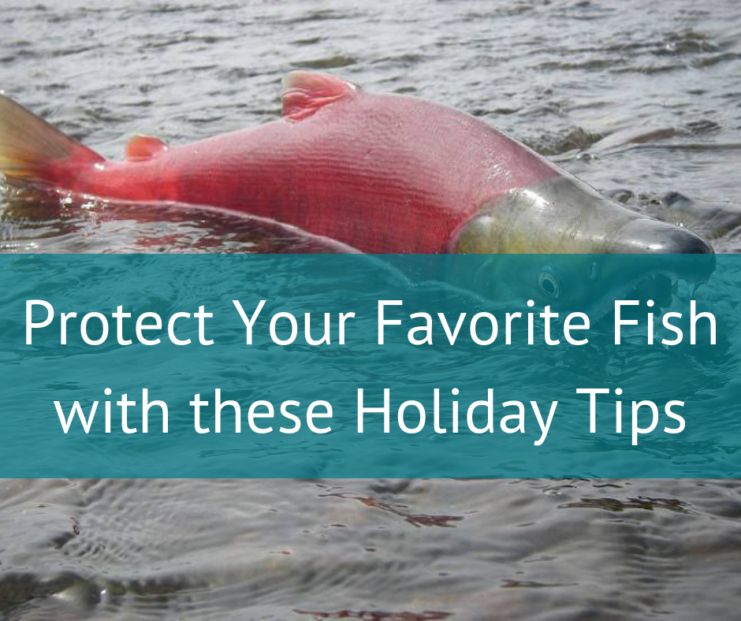It’s that time again when we tend to feast on post-Romanesque food inhalation and gift-giving frenzies. The simple gift, including its wrapping paper, can contain hidden dangers from toxic chemicals.
Younger children spend a good amount of time on the floor, exhibiting the famous “hand to mouth” behaviors which are typical of that stage of development. Our small charges also are rapidly developing, with high metabolic rates and detoxifying organs that are not fully formed yet. Many chemicals embedded in products react to use and light, and product particles—things you cannot see- end up on the floors and rugs where kids tousle about.
As we reflect on our Toxics in Fish work, we recognize that many of the Chemicals of Emerging Concern we are addressing also pose significant risks to human health over the long term.

U.S. Public Interest Research Group, which has offices across the United States, recently issued a very useful report on the toy industry more broadly:
https://uspirg.org/feature/usp/Trouble-In-Toyland
Here are a few holiday tips to keep you happy and safe!
Experience This
Surfing anyone? Skiing? Cooking lessons? Want to learn Meringue dance forms? Rather than purchasing gifts, you can share the gift of experience, whether you buy that experience or lend your own skills. Experiential gifts are also reported to evoke stronger social relationships and emotional responses.

Fix What you Love
Our friends at Zero Waste Washington are reviving the art of repair, giving extended life to something you already adore. This novel approach will involve developing Fix-it Fairs in Seattle where you can bring in items that need fixing and get paired with a qualified fixer. While not on the street yet, read more and get involved: https://zerowastewashington.org/newsletters/4th-quarter-december-2021-enewsletter/
Shop Smart, Shop with your Values
There are a number of non-profit organizations that specialize in consumer-focused initiatives. The Environmental Working Group, home to the famous cosmetic database (which you can search online- remember, many of the CECs we are looking at fall into the personal care category), provides some great tips on how to buy clean:
https://www.ewg.org/news-insights/news/2021/12/ewgs-2021-gift-guide
The Green Chemistry Institute, now specializing in the “forever chemicals,” (per- and poly-fluoroalkyl substances), PFAS, recently issues a list of PFAS free products. For all you outdoor aficionados, PFAS has historically been used to create water resistent outdoor products. See what products are available that are PFAS free.
https://pfascentral.org/pfas-free-products/

Another colleague and local non-profit, Toxic-Free Future, recently integrated a few new programs into their portfolio, including Mind the Store which gives a report-style card of what top retailers are doing to select out toxics in their products (via changes in their supply chain or working with their manufacturing partners). While you won’t be able to make a judgment about particular products, it does give you a good idea of how muscular a company’s commitment and actions are with respect to reducing toxics in products.
Some of our local leaders are doing very well, others not so much so. As we work at all levels of policy, incentives, laws, and communication, you are a powerful consumer with tools at your disposal. Please use them with glee and purpose.

